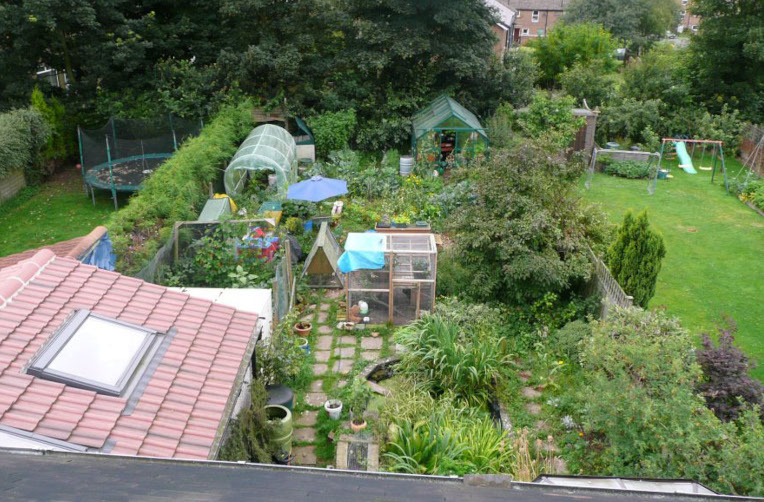(Conversation recorded on October 9th, 2023)
Show Summary
On this episode, Nate is joined by ‘permaculture’ author and educator David Holmgren to discuss his experience within the movement and what it might look like for more systems to be designed using permaculture in the future. While often thought to be an agricultural tool, permaculture thinking is meant for designing human systems to be embedded in nature – an important principle for a future where societies will need to re-synchronize with natural flows. What does it mean for permaculture design to ‘scale up’, and how is it different from how we usually think about growing a system? How will permaculture design change as we move through different phases of resource availability? More importantly, how can the ‘small and slow’ foundation of permaculture help human societies adapt to a lower throughput future as we navigate The Great Simplification?
About David Holmgren
David Holmgren is best known as the co-originator of permaculture. In 1978, he and Bill Mollison published Permaculture One, starting the global permaculture movement. Since then, David has developed three properties, consulted and supervised on urban and rural projects, written eight more books, and presented lectures, workshops and courses in Australia and around the world. His writings over those three decades span a diversity of subjects and issues, whilst always illuminating aspects of permaculture thinking and living.
Holmgren Design would like to offer a discount on RetroSuburbia to The Great Simplification listeners. Get a 20% discount on RetroSuburbia plus a free copy of Our Street for the month of November by using code: Nate at this link: http://retrosuburbia.com/nate
Show Notes & Links to Learn More
00:00 – David Holmgren Works + Info
02:09 – Bill Mollison, Permaculture One
03:42 – Regenerative Agriculture, Resilience in Agriculture
07:42 – P.A. Yeomans
09:45 – Unproductive crop land converted back to pasture land
10:33 – Regrowth of forests due to fossil fuel energy surplus
11:40 – Howard T. Odum, Environment, Power, and Society
12:14 – Club of Rome, Limits to Growth Report, E.F. Schumacher Small is Beautiful
12:38 – Edward Goldsmith
14:20 – Maximum Power Principle
15:03 – Embodied Energy
20:18 – Thatcher-Reagan politics of the 80s
21:43 – Yom Kippur War, Oil crises
26:40 – John Michael Greer
35:45 – RetroSuburbia: the downshifter’s guide to a resilient future | permaculture-design
40:37 – Historic population of Saudi Arabia
43:55 – Stainless steel is an infinitely reusable material
44:55 – Bullshit Jobs
45:52 – ‘Weeds’ and land rehabilitation
46:52 – Exotic Vigor and European colonization
47:33 – Australian Eucalypt, use in Ethiopia
49:46 – Andrew Millison, Vandana Shiva
50:21 – 700% more mammalian biomass than 10,000 years ago
52:13 – Haber-Bosch, half the nitrogen in the human body can be traced back to Haber Bosch
52:27 – Nitrogen Fixation
53:41 – Sharon Astyk, Nation of Farmers
55:39 – Phosphate binding in soil, microbes making it bioavailable
56:37 – Blue-green algal blooms from fertilization and organic matter run-off
58:05 – Topsoil Depletion
58:45 – Planet Soil
59:01 – Food Forests
1:00:28 – Kookaburras
1:02:35 – Dictator Dave’s National Water Policy
1:06:10 – Good quality timber comes from slowly grown trees
1:06:22 – Rapid growth animal agriculture leads to more disease and shorter lives
1:06:32 – Dan Palmer, Living Design Process
1:10:12 – Roots of permaculture in indigenous culture and practices
1:11:39 – Bioneers
1:12:31 – David Suzuki
1:15:47 – Globalization, relocalization
1:16:34 – Putin, Chavez, resource nationalism
1:17:51 – Australia vulnerability to extreme climate change






